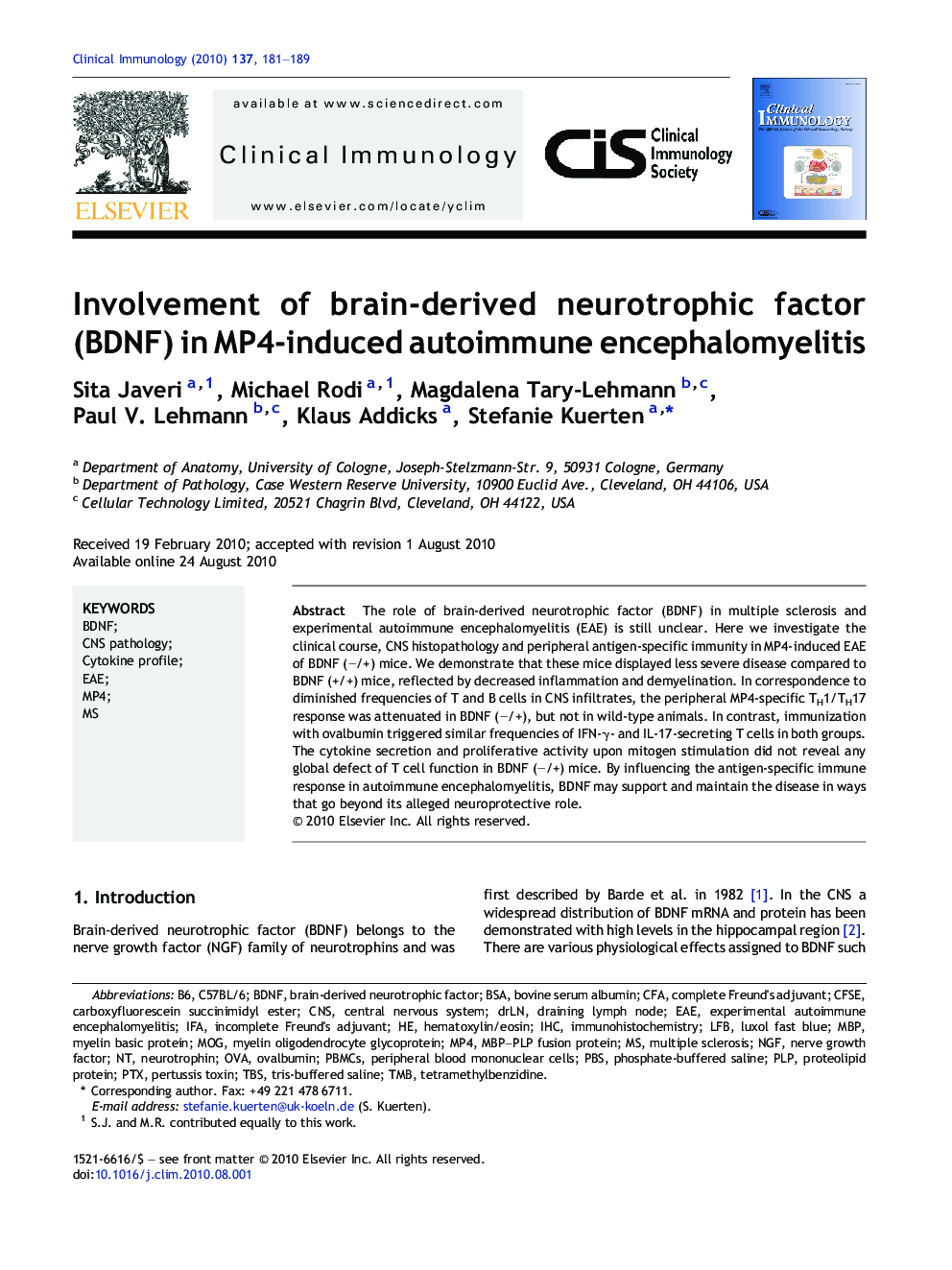| Article ID | Journal | Published Year | Pages | File Type |
|---|---|---|---|---|
| 3257285 | Clinical Immunology | 2010 | 9 Pages |
The role of brain-derived neurotrophic factor (BDNF) in multiple sclerosis and experimental autoimmune encephalomyelitis (EAE) is still unclear. Here we investigate the clinical course, CNS histopathology and peripheral antigen-specific immunity in MP4-induced EAE of BDNF (−/+) mice. We demonstrate that these mice displayed less severe disease compared to BDNF (+/+) mice, reflected by decreased inflammation and demyelination. In correspondence to diminished frequencies of T and B cells in CNS infiltrates, the peripheral MP4-specific TH1/TH17 response was attenuated in BDNF (−/+), but not in wild-type animals. In contrast, immunization with ovalbumin triggered similar frequencies of IFN-γ- and IL-17-secreting T cells in both groups. The cytokine secretion and proliferative activity upon mitogen stimulation did not reveal any global defect of T cell function in BDNF (−/+) mice. By influencing the antigen-specific immune response in autoimmune encephalomyelitis, BDNF may support and maintain the disease in ways that go beyond its alleged neuroprotective role.
